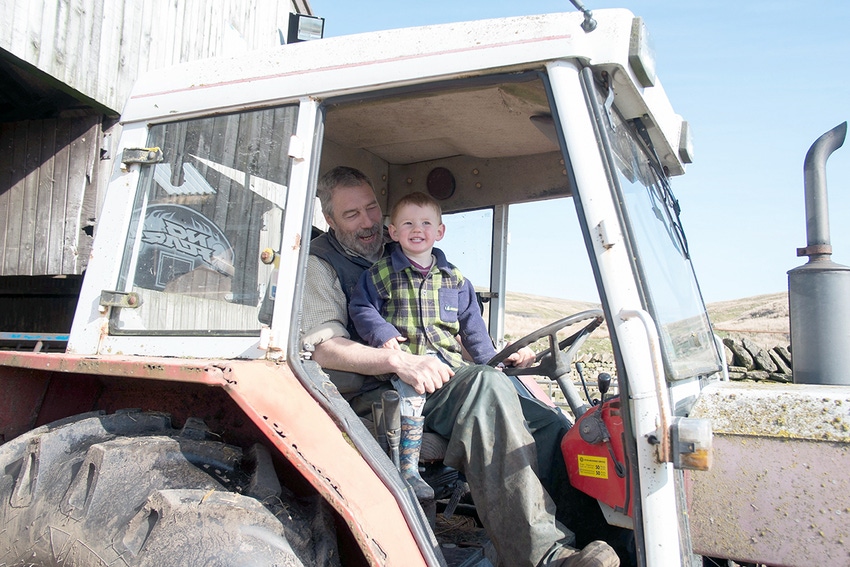March 18, 2016

Farm transition to the next generation — as if there’s a choice, many farmers, ranchers, and agribusiness owners are tempting fate and ostensibly sitting this one out. Maybe they assume good health and fortune will last forever. Perhaps they think they’ll be able to continue as long as they want. Or, possibly they just don’t want to consider it at all.
For them, succession, leaving the operation and allowing someone else to assume control, is not a pressing concern, and it’s certainly not a pleasing thought.

Kevin Spafford
But, intellectually they know the alternative won’t happen either. As mere mortals, we all have an expiration date and fortunately we don’t know when our time is up.
Back in 1961, Ernest K. Gann titled a book of short stories, Fate Is the Hunter. As a phrase, no truer warning has ever been printed. For, as Gann writes in the closing pages, “At least let us admit that the pattern of anyone’s fate is only partly contrived by the individual. And let us now remember that a wealthy gambler once said the essence of his success was in knowing when to quit.”
For the family farmer, rancher, or agribusiness owner there is a best time to plan for the continued success of the operation. There are defined planning models and proven methodologies. All an owner has to do is commit and then take the steps necessary to complete the plan.
Yet, according to the 2015 MassMutual Business Owner Perspectives Study, of the six core pillars concerning business owners, transitioning ownership of a business is ranked second to last in priority and may not even be a real concern to a majority of the owners surveyed.
As a farm owner, it’s your prerogative. It’s your operation. It’s your career. And, it’s your investment. You can do with the operation what you want.
Just be mindful, inaction is that part, as Gann warns, that’s “contrived by the individual.” In other words, you can actually choose a different result by opting to engage in planning for the long-term success of your operation. Then, and only then, can you influence the outcome and affect the when, how and whom your farm will pass to the next generation.
The study reminds us there are multiple methods for transitioning ownership, including:
1. Gifting – Basically, giving the business to another person with no form of compensation as a gift, whether the recipient is related or not. Though it may be a nice gesture and in rare cases justifiable, the business is no longer an asset of the gifter and will not continue providing financial security.
2. Selling – Receiving compensation for the operation adds to an owner’s financial security. Capital received in exchange for ownership can offset accumulated debt, be used for additional investments, or appropriately set aside to provide financial security in retirement.
3. Liquidating – Another form of selling is liquidation. Allowing the operation to effectively go out of business and then marketing the capital assets at auction (or some other “used” transaction) does provide some money, though not an amount comparable to the value of the operation as a going-concern.
4. Merging – Becoming a part of a separate operation to eliminate redundancies or facilitate economies of scale is another form of ownership transfer which allows an owner to realize some return on the asset while reducing expenses and/or sharing management responsibilities.
No matter which option you choose, planning starts with your commitment. The process is relatively simple. It begins with a communication strategy and depends on the owner’s ability to maintain financial security throughout the process.
According to the study, “Nearly 40 percent of business owners don’t have a retirement income strategy outside of their businesses.” All of this speaks to the importance of choosing the most advantageous exit strategy.
And if it’s the emotional ramifications of planning that are holding you back, the Business Owners Perspective Study reports that “owners with no plan or agreements in place are stressed, nervous, and anxious.” Conversely, “owners with plans or agreements in place are engaged, hopeful, and secure.”
For more information from the study, go to https://bit.ly/MassMutualStudy.
Kevin Spafford and his firm Legacy by Design (Legacy-by-Design.com) serve the succession planning needs of farmers, ranchers, and agribusiness owners. Reach Kevin by email ([email protected]) or phone (877) 523-7411.
You May Also Like




